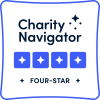March is Women’s History Month, and we want to take time to celebrate the region’s unique and powerful female leaders. Several months ago, Americans for the Arts (AFTA) invited me to write about my experiences as a woman working in the nonprofit arts sector. (You can read my thoughts here.) Inspired by my experience, GBCA has launched a new series designed to highlight the voices of women in leadership roles. We will be sharing one blog per week by some of the area's biggest names in the arts and culture in this newsletter. Many others will appear on our social media channels. First up, is a piece from Stacie Sanders, Executive Director of Young Audiences Arts for Learning, Maryland. Read Stacie’s thoughtful reflections on her career and how her mother's example has impacted her entire life.
For the past two days, I have been on Capitol Hill with the Maryland delegation for AFTA’s National Arts Action Summit. This gathering included delegations from 50 states, who came together to speak to their elected officials about the impact of the arts and to encourage their support. Although there are many issues of law to address, this week we focused on urging Congress to continue bipartisan support for a budget of $167.5 million for the National Endowment for the Arts (NEA), to fully fund and implement the Well-Rounded Education provisions by strengthening equitable access to arts learning, and to bring back tax deduction incentives for giving to charities by enacting universal charitable deduction for all tax payers.
GBCA is also concerned about changes in the tax bill that now, for the first time, taxes nonprofit organizations for the transportation benefits they offer staff.
The NEA is the only arts funder in America, public or private, that supports the arts in the 50 states, District of Columbia and U.S. territories. Every congressional district benefits from an NEA grant. The NEA’s role is to make sure all Americans have access to the arts, no matter where they live. In fact, 65% of NEA grants go to small and medium sized budget organizations that tend to support projects that benefit audiences that might otherwise not have access to arts programming. As stated in the Enabling Legislation for the National Foundation on the Arts and Humanities Act of 1965, “The Arts …belong to all the people of the United States.”
You can find out about these and other legislative issues on AFTA’s website. That way you can learn about the CREATE Act and issues affecting visa processing and public exchange, the Office of Museum Services, and more. Once you do, be sure to let your elected officials know what you care about.
Best,
Jeannie


